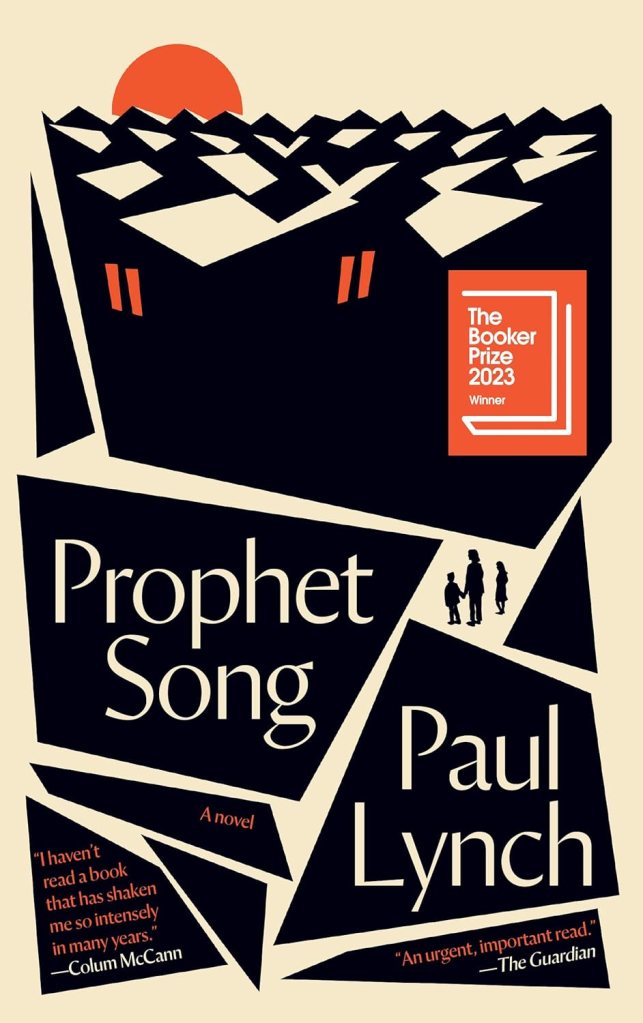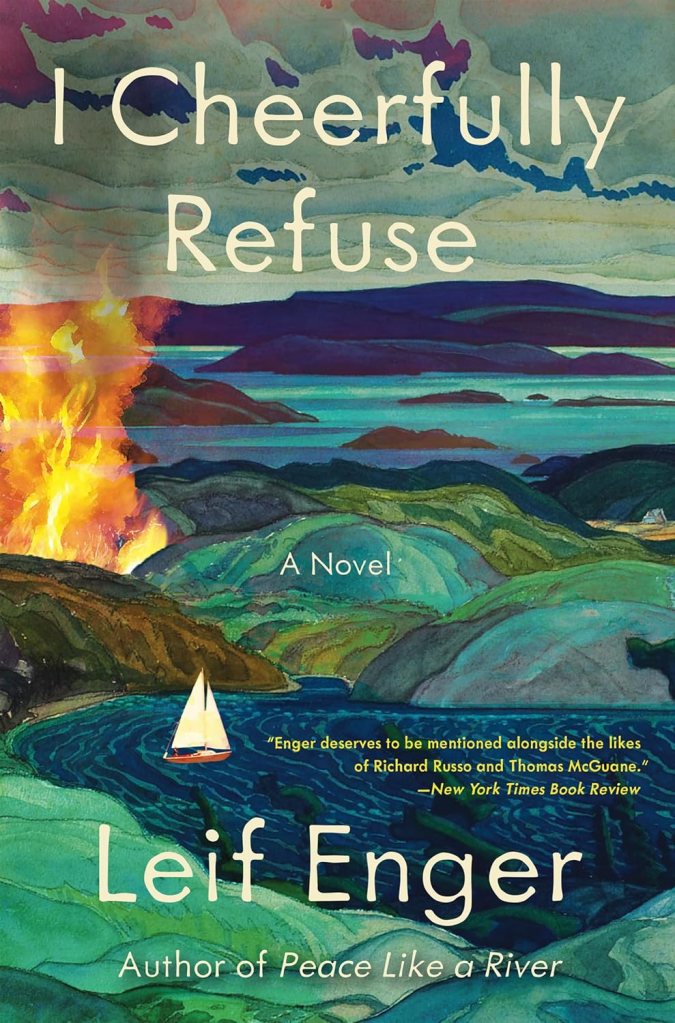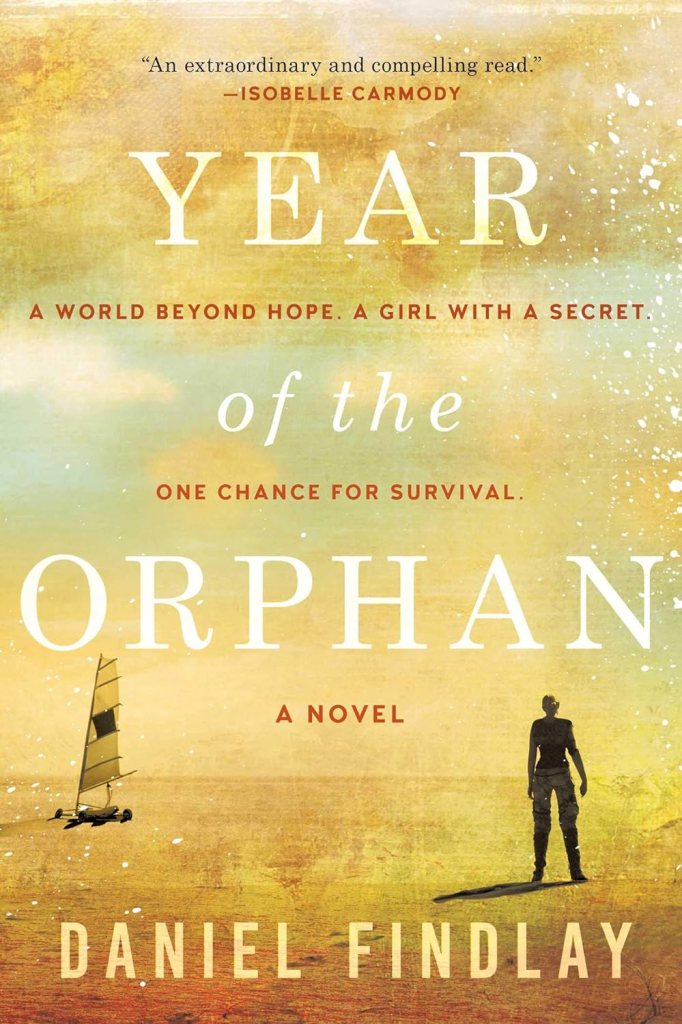A dystopian novel gives a cautionary and prophetic glimpse into the disastrous place the ordinary world is in danger of becoming. Often these literary glimpses are grim, because the circumstances these novels critique are grim. Some dystopian novels might be classified as “genre fiction” (example: The Hunger Games, by Suzanne Collins, clearly mines a number of popular YA tropes), whereas others are more “literary” (example: Margaret Atwood’s The Handmaid’s Tale relies on post-modern literary devices such as fractured narrative).
But what does the distinction between “genre” and “literary” even mean? Some genre fiction is just for fun, there mostly to scratch the itch of favorite tropes and storylines. Some literary fiction is so much about language and the way it works that I wonder if I’m really reading an extended poem, a piece of writing not essentially about “story” at all, even if it has some narrative bones. Plenty of novels straddle the divide, or fall to one side or the other but just barely. Booksellers might market a novel as one or the other without much reason beyond, “Okay, this will sell, if we present it THIS way.”
With that as a caveat, I’m on fire to talk about three dystopian novels I have read recently, all of them–or so it seems to me–in the “literary” camp. Whatever that means. They are:
- Paul Lynch’s 2023 novel Prophet Song.
- Leif Enger’s 2024 novel I Cheerfully Refuse.
- Daniel Findlay’s 2019 novel Year of the Orphan

Paul Lynch, Prophet Song, Atlantic Monthly Press, 2023
This novel, which won the prestigious Booker Prize for 2023, is simply astounding. Set in near-future Dublin, Prophet Song seems at first almost a realistic novel about a family with typical ups and downs, typical conflicts. But the reader realizes almost from the outset that the family’s normal life has begun a chilling slide into the abnormal. Society is breaking down around them, at first subtly and slowly, then with increasingly cruel speed.
This is the kind of novel that forces you to recognize how easy it would be for your own supposedly normal society to take the same frightening plunge into autocracy and violence. Lynch’s novel could have been set in any number of hot spots around the world threatened by encroaching autocracy, including (as a citizen, it pains me to say) the U.S.A. But it’s not. It is set in Dublin, one of the most ostensibly sane and civilized places on the planet. That makes the devolution into chaos and violence all the more horrific. Lynch handles the writing, the characters, the situations masterfully, resulting in a chillingly realistic portrait of a society–and individual characters–torn apart.

Leif Enger, I Cheerfully Refuse, Grove Press, 2024
Mr. Enger, the author of Peace Like a River, a wonderful novel from 2007, has written another masterpiece. I loved Peace Like a River so much that at first I couldn’t relax into the slow rhythms of I Cheerfully Refuse, a near-future dystopian novel set in northern Minnesota on the shores of Lake Superior.
In I Cheerfully Refuse, the sunny and optimistic Lark and the bear-like musician narrator, Rainy, enjoy an idyllic relationship against the unlikely backdrop of a drastic breakdown of civil order. Their love stands in optimistic counterpoint to this broken world. As tragedy intrudes, Rainy undertakes a meandering journey fraught with danger and desperate hope, and the novel picks up the pace.
In Enger’s vision of societal breakdown, oligarchs and plutocrats have seized control of the U.S., leaving ordinary folk at the mercy of either extreme lawlessness or the punitive measures of a remorseless and cruel bureaucracy. In this dystopian vision of the U.S., any one person’s fate depends on whether the person is unlucky enough to draw the attention of the authorities or has the skills–and the luck–to fly under the radar. On the face of it, this novel seems just as grim as Lynch’s Prophet Song, and in its depiction of a destroyed society, it is. But Enger’s novel is strangely hopeful, even uplifting–and not in a saccharine or glib way, either. What a feat!
Peace Like a River had more than a touch of magical realism about it, and so does this novel. I loved this book. At least some of my emotional attachment has to be due to my love of the landscape Enger describes. I spend half my time in Minnesota, although in the Twin Cities area, not the Arrowhead, that point of land north of Duluth sticking out into the dangerous waters of Lake Superior. But every time I drive north up Highway 61, my heart lifts. Once you get to the end of that highway, you’re in Canada–and that proximity figures prominently in Enger’s novel.

Daniel Findlay, Year of the Orphan, Arcade, 2019
This novel isn’t as recent as the other two. Also, instead of depicting a near-future world, it shows us the horrific aftermath of nuclear war many centuries into humanity’s desperate attempt to scratch out an existence in a hostile environment. Findlay’s novel, set in a destroyed Australia, focuses on a young girl who pieces together exactly how her world turned so toxic and destructive.
I had a lot of trouble reading this book. I’d read a little and put it down, sometimes for weeks. I always came back to it, though, and recently I finished it at last. (I’m a fast reader–not my usual experience.) So yes, the pace is slow. But this novel really rewards the reader’s persistence. Like Lynch’s and Enger’s novels, Year of the Orphan offers serious insights into the human condition and the forces that drive human beings to turn into their own worst enemies.
I did wonder at myself and my lack of patience with this novel. The structure is complex, moving back and forth in time, often abruptly, and the language is difficult. That should not have stopped me. I’m used to reading books like this.
Here’s what I think went wrong for me as a reader–at least at first. When we readers choose a book to read, we’re often driven by a certain kind of impulse: “I want something serious to read.” “I want something fun to read.” “I want escape.” “I want a fictional way to confront the problems of my world.” “I want brilliant writing.” “I want to be swept along by a twisty plot.” If we open a book thinking we’re getting escape, and we get something else, we may be disappointed or at least unsettled. I think that might have been what happened to me originally as I opened Findlay’s novel and began to read.
Here’s what the promotional “blurb” on Amazon has to say: “The Road meets Mad Max” . . . “badass young female protagonist”. . . “propulsive pacing”. . .”a thriller of the future.” I’m thinking here, ESCAPE! GENRE FICTION! I love literary fiction, but I love a fast-paced fun read, too (eh. . .the two aren’t mutually exclusive. . .just saying). I felt I was promised genre fiction, and I got literary. And that threw me. Perhaps the reference to Cormac McCarthy’s The Road should have tipped me off, but no, I was focused on Mad Max. The promotional blurb’s comparison of Findlay’s book with Russell Hoban’s Riddley Walker should have absolutely tipped me off, but my reptile brain was chanting, Mad Max! Propulsive pace! Thriller! and I didn’t pay enough attention. I think marketing did Findlay’s very fine book a disservice. It’s just the truth, though, that a publisher’s attempts to sell a lot of books can drive these marketing decisions, and maybe we wouldn’t have had the novel at all if not for that.
So what did I actually find as I began to read? A slow pace. A slow build. That’s fine in a more literary work, because plot is not the be-all and the end-all there. Good writing is. Plot may be important in a literary novel, but without good writing, it’s nowhere. And this book is written very well.
Another element that threw me off is absolutely not the writer’s fault. I’m a U.S. reader, and I know next to nothing about nuclear testing in 1950s Australia. Findlay’s novel is about a girl of the future uncovering a mystery from the past in small, telling clues. But the clues–while they probably made a lot of Australian readers nod in recognition, meant nothing to me. By the end of the novel, I got it. But for me, getting it was a long time coming.
Still another element is the jumping back and forth in time. In genre fiction, too much of that loses the reader. In literary fiction, a reader who wants that experience will go with it. Atwood’s The Handmaid’s Tale in effect hands the reader a bunch of unedited tape-recorded reminiscences and tells the reader to put them together herself. I did, and I was glad I did. In the process of reading Mr. Findlay’s novel, I had to revise my thinking and expectations, and then I could do it. Mr. Findlay doesn’t give many easy-to-understand cues, either, to alert us to the leaps.
Here’s the final element that slowed me down: the language. As I say, this novel is very well-written. But its style cries out for patience. Gregory Orr’s great little book, A Primer for Poets & Readers (W. W. Norton, 2018), makes an important point about writers and how they write. He’s speaking specifically of poets, but he could be speaking of any kind of writer. He says that in every poet (writer), there’s a clash between order and disorder. Each writer has to find his or her threshold between the two–not too much order, or the piece of writing will seem stifled. Not too much disorder, or the piece of writing will seem chaotic. This moment of balance is very personal to each writer. BUT ALSO each reader has such a threshold. My tolerance for a lot of disorder in a piece of writing, or my need for a lot of order, also needs to find its own personal balance. So if a writer’s threshold and a reader’s do not match up, the reader is likely to feel unfulfilled and frustrated. Yet a writer–at least a literary writer–has the obligation to herself/himself to write at that point of personal balance, not to cater to someone else’s perceived point of balance. A genre writer, “writing to market,” may not adhere to that. A literary artist will.
Mr. Findlay’s choice of how to handle the language in Year of the Orphan strikes me as one of those artistic decisions. He thinks about what a language of the future in Australia would have to sound like, and he creates that language. Some readers will have patience with his decision and follow him there. If the decision does not meet other readers at their threshold, though, they won’t have the patience to keep reading.
I’ve been thinking about this issue for a long time. My own training is in Renaissance English literature, and in my doctoral work, I focused most on Edmund Spenser’s Faerie Queene. Spenser, like Mr. Findlay, had to make a decision about the language appropriate to the literary world he wanted to create. In Spenser’s case, he was trying to retrieve a past that had never actually existed, so he mimicked, brilliantly, a kind of faux-Chaucerian language that, for him, reflected the bygone era he was trying to recreate. His friend the poet Sir Philip Sidney begged him not to do it, suggesting he would lose readers if he more or less created his own language. Spenser did it anyway, adhering to the integrity of his own threshold. Some readers have the patience to follow him there (me!). Many don’t, especially as the centuries have rolled by, making Spenser’s language more and more difficult for regular readers.
This happens in speculative fiction, too. (In fact, I’d argue that Spenser was writing a type of speculative fiction himself, just looking back to an imagined past instead of forward to an imagined future.) Who creates an imagined language in speculative fiction? Russell Hoban, in the brilliant post-apocalyptic novel Riddley Walker, did it. Some readers are willing to follow him there, while others won’t want to. Anthony Burgess did it, although maybe not so radically, in A Clockwork Orange. Denis Johnson did it in his post-apocalyptic novel Fiskadoro. This is what Mr. Findlay did, too, in Year of the Orphan. At first, I found myself resisting and not wanting to follow him in his own world-building via language. But in the end, re-adjusting my expectations about his novel, I did. In the acknowledgments at the end of his novel, he credits Riddley Walker for inspiring him. I can see that! I’m glad my threshold as a reader and Mr. Findlay’s threshold as a writer were able to mesh, because reading this novel was very worth my time and patience.
